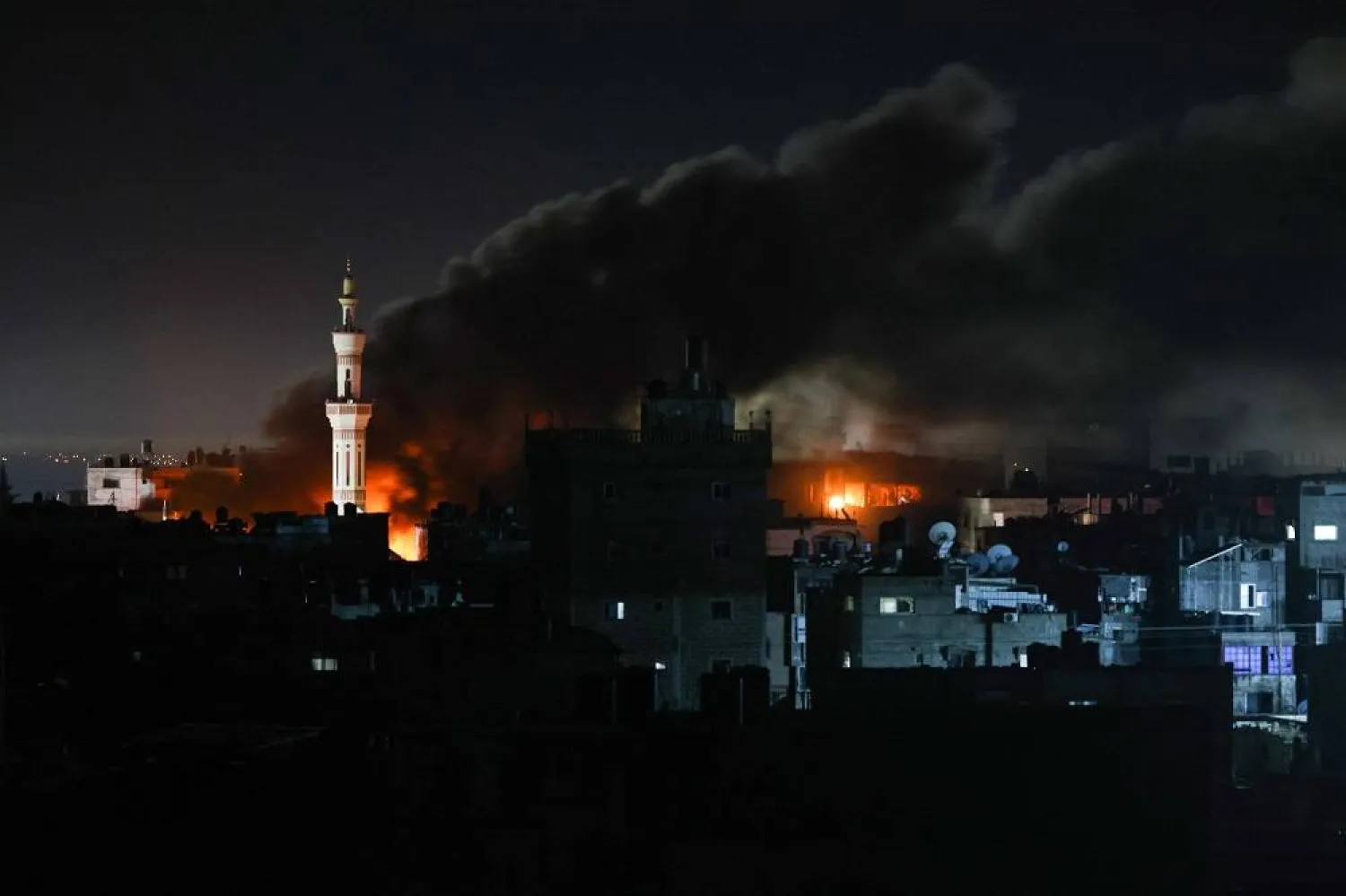Israelis welcomed the rescue Monday of two hostages from war-ravaged Gaza, but fears of a looming ground incursion grew among more than a million Palestinians trapped in the territory's densely crowded far south.
With a dramatic overnight raid in Rafah city, Israeli special forces freed two captives in a rare rescue mission. They had been held by Hamas militants since the October 7 attack that triggered the war.
Fernando Simon Marman, 60, and Luis Har, 70, were freed amid an intense firefight and heavy airstrikes, then airlifted to a hospital where they were declared in good health.
The overnight bombing in Rafah killed around 100 people including children, said the health ministry of the Hamas-run Gaza Strip.
The Palestinian foreign ministry condemned what it called a "massacre" and accused Israeli Prime Minister Benjamin Netanyahu of "a mentality of revenge".
Netanyahu hailed the operation and said that only "continued military pressure, until complete victory, will result in the release of all our hostages".
Har's son-in-law Idan Bejerano praised the rescue of the Argentinian-Israeli men and described an emotional reunion in a hospital near Tel Aviv as "a lot of tears, hugs, not many words".
The bloodiest ever Gaza war began when Hamas launched an unprecedented attack on southern Israel on October 7 that resulted in the deaths of about 1,160 people, mostly civilians, according to an AFP tally based on official figures.
Militants also seized about 250 Israeli and foreign captives, around 130 of whom are still believed to be held in Gaza, although Israel presumes 29 of them are dead.
Vowing to destroy Hamas in response, Israel has carried out a relentless bombardment and ground offensive in Gaza that the Hamas-ruled territory's health ministry says has killed at least 28,340 people, mostly women and children.
In Rafah, local Palestinian residents surveyed the large bomb craters and rubble left after the intense battle.
One man walked with a pile of salvaged religious books from a bomb-damaged mosque.
Another, 28-year-old Abu Suhhaib, said the fighting had made him feel "as if hell had opened".
Pre-dawn hostage rescue
Weeks of talks towards a new ceasefire and hostage release deal have brought no results yet, and Netanyahu has vowed to send ground troops into Rafah where about 1.4 million displaced Palestinians are living in shelters and tent camps.
They are hemmed into an area near the Egyptian border as the battlefront moves ever closer from the north.
Aid groups and foreign governments -- including Israel's key ally the United States -- have voiced deep concern over the potentially disastrous consequences of expanding operations in Rafah.
The operation there to free the hostages, after nearly 130 days in captivity, was a joint operation between the army, police and Shin Bet security service, the Israeli military said.
A spokesperson from Netanyahu's office said Israeli forces had blown open a locked door on the second floor of a building in Rafah, and "successfully rescued the abductees".
Troops then came under fire from multiple buildings "and a prolonged battle took place, during which dozens of Hamas targets were attacked from the air in order to allow the force to leave the building", the spokesperson said.
Army spokesman Daniel Hagari said "many terrorists" had been killed.
But the support group Hostages and Missing Families Forum warned that "time is running out for the remaining hostages held captive by Hamas" and urged the Israeli government to "exhaust every option on the table to release them".
Dozens of hostages were freed by Hamas during a one-week truce in November that also saw the release of 240 Palestinian prisoners held in Israeli jails.
Hamas's military wing heightened fears among families when it said Sunday that two hostages had been killed and eight wounded in recent Israeli bombardment, a claim AFP was unable to independently verify.
'Stop and think'
United States President Joe Biden last week called Israel's military response in Gaza "over the top", which on Monday prompted European Union foreign policy chief Josep Borrell to say: "Maybe you should provide less arms in order to prevent so many people" being killed.
Washington provides Israel with billions of dollars in military aid.
British Foreign Secretary David Cameron urged Israel to "stop and think seriously before it takes any further action" in Gaza.
Volker Turk, the UN's human rights chief, warned that "an extremely high number of civilians" would likely be killed or injured in a full Israeli incursion into Rafah.
Netanyahu has said Israel would provide "safe passage" to civilians trying to leave Rafah.
The EU's Borrell, like Gazans themselves, wondered where they can go.
"They are going to evacuate -- where? To the moon?" Borrell said.
Iman Dergham, displaced from Khan Younis city to Rafah, said that "wherever we go there's bombing. Martyrs and wounded are everywhere."
Another resident, Ibrahim Abu Jaber, survived the bombing on Monday but asked: "What if the actual invasion took place?" He fears "the martyrs will be in the thousands."
Renewed talks for a pause in the fighting have been held in Cairo, with Hamas open to a fresh ceasefire including more prisoner-hostage exchanges, but Netanyahu has dismissed some of the group's demands as "bizarre".
A Hamas leader told AFP on condition of anonymity that an Israeli push into Rafah "would torpedo the exchange negotiations".
The Israeli army said Monday that two more soldiers had been killed inside Gaza, bringing the military death toll to 229 since ground operations began in late October.
Hamas's armed wing said it had "finished off" 10 soldiers in Khan Younis, the southern Gaza city several kilometers (miles) from Rafah, where heavy fighting has occurred.









